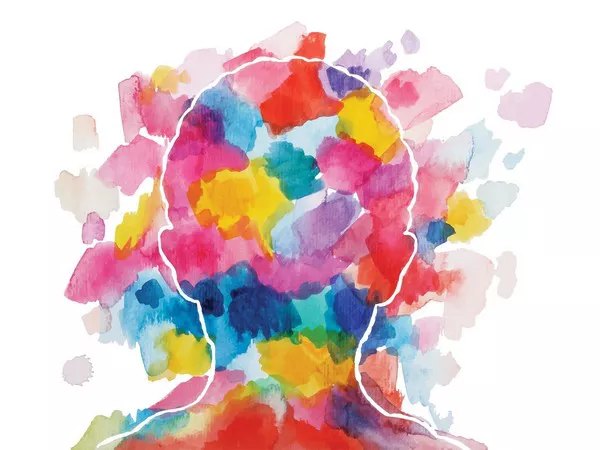Depression, often characterized by persistent sadness, loss of interest or pleasure in activities, and feelings of hopelessness or worthlessness, affects millions of people worldwide. While severe cases may require professional intervention and medication, many individuals with mild to moderate depression seek relief through over-the-counter (OTC) treatments. With an array of options available, understanding the most effective OTC treatments for depression is crucial for those navigating this challenging mental health condition.
Understanding Depression and Over-the-Counter Treatments
Before delving into the realm of OTC treatments, it’s essential to grasp the nature of depression. Depression is a multifaceted disorder influenced by various factors, including genetics, brain chemistry, life events, and medical conditions. While therapy and prescription medications are cornerstones of depression treatment, OTC remedies offer accessible alternatives for individuals seeking relief from depressive symptoms.
Exploring the Efficacy of OTC Treatments
Several OTC supplements and herbal remedies have gained popularity for their potential to alleviate depressive symptoms. Among the most researched and commonly used are St. John’s Wort, Omega-3 fatty acids, and S-adenosylmethionine (SAMe).
St. John’s Wort: Derived from the Hypericum perforatum plant, St. John’s Wort has a long history of use in treating mood disorders. Studies suggest that it may be effective in mild to moderate depression by increasing serotonin, dopamine, and norepinephrine levels in the brain. However, caution is advised, as St. John’s Wort can interact with various medications, including antidepressants, birth control pills, and blood thinners.
Omega-3 Fatty Acids: Found in fatty fish like salmon, walnuts, and flaxseeds, omega-3 fatty acids are essential nutrients with potential antidepressant properties. Research indicates that omega-3 supplements may help reduce symptoms of depression, possibly by modulating neurotransmitter function and reducing inflammation in the brain. While more studies are needed to confirm its efficacy, incorporating omega-3-rich foods into one’s diet may offer additional health benefits.
S-adenosylmethionine (SAMe): SAMe is a naturally occurring compound involved in various biochemical processes in the body, including neurotransmitter production. Studies suggest that SAMe supplementation may be as effective as prescription antidepressants in treating depression. It’s believed to work by increasing levels of serotonin, dopamine, and norepinephrine. However, individuals with bipolar disorder should exercise caution, as SAMe may induce manic episodes in some cases.
Lifestyle Changes and Complementary Approaches
In addition to OTC supplements, certain lifestyle modifications and complementary approaches may complement depression treatment:
Regular Exercise: Physical activity has been shown to boost mood and reduce symptoms of depression by increasing the production of endorphins, neurotransmitters that promote feelings of well-being. Engaging in regular exercise, such as walking, jogging, or yoga, can be an effective adjunct to OTC treatments for depression.
Healthy Diet: A nutritious diet rich in fruits, vegetables, whole grains, and lean proteins can support overall mental health and reduce the risk of depression. Avoiding excessive consumption of processed foods, sugary snacks, and caffeine may help stabilize mood and energy levels.
Stress Management Techniques: Practicing stress-reduction techniques such as mindfulness meditation, deep breathing exercises, and progressive muscle relaxation can help alleviate symptoms of depression by promoting relaxation and emotional well-being.
Social Support: Cultivating strong social connections and seeking support from friends, family, or support groups can provide emotional reassurance and reduce feelings of isolation commonly associated with depression.
The Importance of Consultation and Caution
While OTC treatments offer accessible options for managing depression, it’s crucial to approach them with caution and consult with a healthcare professional before initiating any new regimen, especially if you’re already taking prescription medications or have underlying health conditions. Additionally, it’s essential to be mindful of potential side effects, drug interactions, and contraindications associated with OTC supplements.
Conclusion
Navigating depression can be a complex and challenging journey, but with the right tools and resources, relief is within reach. Over-the-counter treatments, such as St. John’s Wort, omega-3 fatty acids, and SAMe, offer accessible options for individuals seeking relief from mild to moderate depressive symptoms. When combined with lifestyle modifications and complementary approaches, these treatments can contribute to improved mental well-being and overall quality of life. However, it’s essential to approach OTC treatments with caution, consult with healthcare professionals, and prioritize holistic self-care practices. By unlocking the potential of OTC treatments and embracing a comprehensive approach to mental health, individuals can take significant strides toward overcoming depression and reclaiming their vitality and joy.
FAQs
What over the counter is good for depression?
It’s important to note that over-the-counter (OTC) options for depression treatment are limited. St. John’s Wort is a popular herbal supplement often used for mild depression, but its effectiveness varies, and it can interact with other medications. Consultation with a healthcare provider is crucial before starting any OTC treatment for depression.
What is the best happy pill for depression?
There isn’t a single “best” happy pill for depression as individual responses to medication vary. Antidepressants such as SSRIs (Selective Serotonin Reuptake Inhibitors) and SNRIs (Serotonin and Norepinephrine Reuptake Inhibitors) are commonly prescribed by healthcare professionals. However, finding the most effective medication often requires a trial-and-error process under medical supervision.
What is the most natural antidepressant?
When considering natural antidepressants, options like regular exercise, a balanced diet rich in omega-3 fatty acids and folate, mindfulness practices like meditation, and adequate sleep are often recommended. These methods can complement professional treatment but should not replace it. Always consult with a healthcare provider for personalized advice and treatment plans tailored to your needs.
Related topics:
- Finding the Best Medication for Depression and Panic Attacks
- Treatment Options: What Is Prescribed for Depression
- Effective Strategies: Treating Depression


